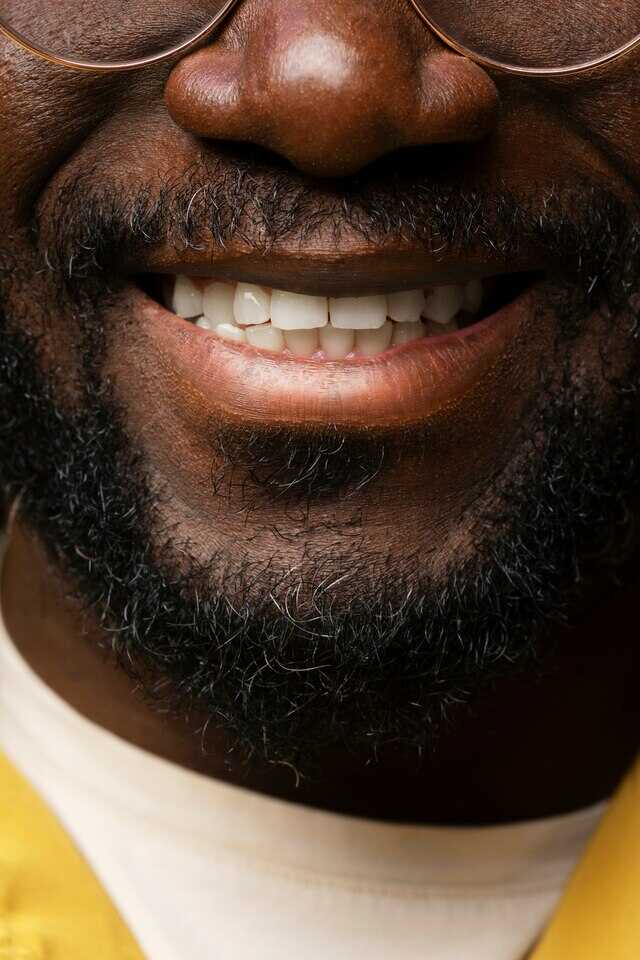Oral hygiene education plays a critical role in preventing dental diseases and improving overall health. Yet, many people still lack access to accurate, actionable information about how to care for their teeth and gums especially in underserved communities where dental services are limited or unaffordable.

At its core, oral hygiene education refers to the teaching and promotion of proper dental care practices. These include daily habits like brushing and flossing, as well as understanding the importance of routine dental checkups, healthy diets, and avoiding harmful behaviors like smoking or excessive sugar consumption.
When individuals are empowered with the right knowledge, they are more likely to develop lifelong habits that reduce their risk of cavities, gum disease, and even tooth loss. But oral hygiene education goes beyond individual impact—it can transform communities. Educated families raise health-conscious children, and schools that incorporate dental health into their curriculum help break cycles of poor oral health.
In many cases, people may not even realize that symptoms like bleeding gums or persistent bad breath are signs of more serious conditions. That’s why ongoing education—through schools, clinics, public health programs, and digital platforms—is essential to raising awareness and encouraging preventive care.
The Importance of Oral Hygiene Education
In this comprehensive guide, we break down what oral hygiene really means, why it matters, and how both individuals and communities can benefit from better dental education. Whether you’re a parent, student, healthcare worker, or simply looking to improve your smile, this resource offers the tools you need to make informed decisions about your oral health.
.
✅ What Is Oral Hygiene Education?
Oral hygiene education is the process of teaching people how to properly care for their mouth, teeth, and gums to prevent oral diseases such as cavities, gum disease, and bad breath.

It involves:
- Brushing and flossing techniques
- Understanding the importance of regular dental checkups
- Healthy dietary habits
- Awareness of risk factors like smoking and sugar
According to the World Health Organization, poor oral health can lead to pain, discomfort, disfigurement, and even death in extreme cases (WHO).
🧠 Why Oral Hygiene Education Matters
The benefits of proper oral hygiene education extend far beyond just having a bright, attractive smile. It’s a key factor in promoting long-term health, reducing healthcare expenses, and improving quality of life.
Here’s why oral hygiene education is so important:
- Reduces Dental Costs: Preventive care—such as brushing, flossing, and routine checkups—helps avoid costly treatments like root canals, crowns, and extractions. Educating individuals early can save families and health systems thousands in avoidable expenses.
- Improves Confidence: A healthy, clean mouth contributes to fresh breath and a whiter smile, both of which are tied to self-esteem and social comfort. When people feel good about their smiles, they’re more likely to engage socially and professionally.
- Protects Overall Health: Poor oral health isn’t isolated. Gum disease has been linked to serious systemic conditions like heart disease, diabetes, and even respiratory infections. Oral hygiene education can help individuals understand these risks and take preventive measures.
- Empowers Communities: When communities are educated, they’re healthier. Knowledge spreads from schools to homes, encouraging positive habits across generations and reducing oral health disparities caused by income, access, or geography.
Investing in oral hygiene education isn’t just smart—it’s essential for building healthier lives and stronger communities.
👶 Start Early: Teaching Children Oral Hygiene education
It’s essential to begin oral hygiene education early in life. Habits formed during childhood often carry into adulthood. Here’s how to get started:
- Lead by Example: Kids learn by watching their parents.
- Use Fun Tools: Choose toothbrushes with their favorite characters.
- Set a Routine: Brushing twice a day should become non-negotiable.
- Visit a Pediatric Dentist: Early checkups can prevent future issues.
📌 Related: Learn more about Pediatric Dentistry Services offered by certified dental experts across Kenya.
🪥 Proper Brushing Technique: Are You Doing It Right?
Believe it or not, many adults don’t brush their teeth correctly. Here’s a step-by-step guide to brushing like a pro:

- Use a soft-bristled toothbrush.
- Hold the brush at a 45-degree angle.
- Brush for two minutes twice daily.
- Use circular motions—don’t scrub aggressively.
- Don’t forget your tongue!
💡 Pro Tip: Replace your toothbrush every 3 months or after illness.
🧵 🧵 Don’t Skip the Flossing
Flossing is a crucial part of any complete oral hygiene routine, yet it remains one of the most commonly skipped steps. While brushing removes plaque from the surface of your teeth, it can’t reach the tight spaces between them or beneath the gumline. That’s where flossing comes in.
When you skip flossing, you leave behind food particles and bacteria that can harden into plaque and tartar. Over time, this buildup can lead to inflammation, gum disease (gingivitis or periodontitis), bad breath, and even tooth loss.
Flossing just once a day can make a significant difference in your oral health. Here’s how to do it correctly:
- Use about 18 inches of dental floss: Wrap most of it around your middle fingers, leaving an inch or two to work with.
- Slide the floss between your teeth gently: Avoid snapping it, which can damage your gums.
- Curve it into a C-shape around each tooth: This allows better contact and cleaning.
- Clean under the gumline without forcing it: Glide the floss up and down carefully.
Whether you prefer traditional floss, floss picks, or water flossers, the key is consistency. Daily flossing helps keep your gums healthy and reduces your risk of cavities between teeth.
.
🥗 The Diet–Dental Health Connection
What you eat has a direct impact on your oral health. A poor diet filled with sugary snacks and acidic beverages can quickly lead to tooth decay, enamel erosion, and gum problems. Sugar feeds harmful bacteria in your mouth, which produce acids that wear down your teeth. Acidic drinks like soda and citrus juices can weaken enamel even further.
Fortunately, maintaining a tooth-friendly diet can help prevent these issues and support strong teeth and healthy gums. Nutrient-rich foods can neutralize harmful acids, stimulate saliva production, and strengthen your enamel.
A balanced, dental-friendly diet should include:
- Fresh fruits and vegetables: Crunchy produce like apples, carrots, and celery naturally clean teeth and boost saliva.
- Cheese and yogurt: These dairy products are rich in calcium and help strengthen tooth enamel.
- Lean proteins: Foods like chicken, eggs, and fish supply essential nutrients for gum and tissue health.
- Nuts and seeds: Packed with healthy fats and minerals that support oral tissue repair.
- Water over soda: Water washes away food particles and maintains a neutral pH in your mouth.
Avoid frequent snacking throughout the day, especially on sugary treats, and always rinse your mouth with water after eating acidic or sweet foods to protect your enamel.
🔄 Preventive Dentistry: Education + Action
Oral hygiene education isn’t just about what you do at home. Visiting a dentist regularly is just as important. Preventive services include:
- Professional cleanings
- Fluoride treatments
- Sealants
- Dental exams and X-rays
📌 Related: Explore our Preventive Dental Services for both children and adults.
🆘 ❌ Common Mistakes in Oral Hygiene
Even with the best intentions, many people unknowingly make simple mistakes in their daily oral hygiene routines—mistakes that can lead to long-term damage. Being aware of these common habits is the first step toward improving your dental health.
Here are some oral care missteps to avoid:
- Brushing too hard: Many believe that scrubbing aggressively makes teeth cleaner, but it can actually wear down enamel and irritate your gums.
- Using a hard-bristled toothbrush: Hard bristles can cause gum recession and damage sensitive areas of the mouth. A soft-bristled brush is more effective and gentle.
- Skipping nighttime brushing: At night, saliva production slows down, making your mouth more vulnerable to bacteria. Always brush before bed to avoid overnight plaque buildup.
- Ignoring flossing: Brushing alone doesn’t clean between your teeth. Skipping floss allows plaque to accumulate in tight spaces, increasing your risk of gum disease and cavities.
- Delaying dental visits: Waiting until you feel pain can lead to more serious and expensive treatments. Preventive visits every six months are essential.
Correcting these small habits can lead to dramatic improvements in your oral health. By brushing gently, flossing daily, and seeing your dentist regularly, you’ll protect your teeth for years to come.
🦷 Role of Schools and Public Programs
Schools are ideal platforms for oral hygiene education. Programs that teach children about brushing and healthy eating can shape lifelong habits.
Some key strategies:
- Hands-on brushing demonstrations
- Distribution of toothbrushes and toothpaste
- Incorporating oral health into science curricula
- Dental screenings in schools
External initiatives, like CDC’s School-Based Dental Sealant Programs, have shown excellent results.
🧑⚕️ Dentist’s Role in Patient Education
Dentists and hygienists are more than treatment providers—they’re educators. During routine visits, they should:
- Demonstrate brushing and flossing techniques
- Recommend the best oral care products
- Explain how dental conditions develop
- Provide diet and lifestyle guidance
📌 Related: Learn more about Emergency Dental Care and how our dental clinics in Kenya offer same-day appointments for urgent oral health issues.
💬 Top FAQs About Oral Hygiene
1. How often should I brush my teeth?
Twice a day—once in the morning and once before bed.
2. Is mouthwash necessary?
Yes, it helps reduce plaque, freshens breath, and can prevent gingivitis.
3. Can oral health affect other parts of my body?
Absolutely. Gum disease is linked to heart conditions, respiratory illness, and diabetes.
4. How soon should children visit a dentist?
By their first birthday or within six months of the first tooth.
5. Are electric toothbrushes better?
They can be more effective at removing plaque, especially for people with mobility issues.
📊 Oral Hygiene and Public Health: The Bigger Picture
In developing countries like Kenya, access to oral health education is limited. The consequences include:
- Higher rates of untreated cavities
- Increased tooth loss
- Greater burden on healthcare systems
Community-level interventions, mobile dental clinics, and multilingual education materials can bridge this gap.
📌 Learn More: Best Dental Clinics in Kenya offer mobile and affordable care across various counties.
📝 📝 9 Proven Tips for Better Oral Hygiene
Practicing good oral hygiene isn’t complicated, but consistency is key. Following a few simple habits can protect your teeth and gums for life. Here are 9 proven tips to improve your daily routine:
- Brush twice daily with fluoride toothpaste: Brush in the morning and before bed to remove plaque and prevent cavities. Fluoride strengthens enamel and fights tooth decay.
- Floss every day—don’t skip it! Flossing removes food and plaque from between your teeth, where your toothbrush can’t reach.
- Limit sugary snacks and drinks: Sugar feeds bacteria that produce harmful acids. Reduce consumption of sweets, soda, and acidic beverages.
- Visit the dentist every 6 months: Routine checkups and cleanings help catch problems early and keep your teeth in top shape.
- Drink water throughout the day: Water rinses away food particles and keeps your mouth hydrated, supporting saliva production.
- Use mouthwash for extra protection: Antibacterial mouthwashes help reduce plaque, freshen breath, and prevent gum disease.
- Replace your toothbrush every 3 months: Worn bristles are less effective and can harbor bacteria.
- Clean your tongue daily: Your tongue can hold bacteria that contribute to bad breath and plaque buildup.
- Teach kids early and make oral care fun: Use colorful brushes, songs, or brushing apps to encourage children to form lasting healthy habits.
.
📚 Conclusion: Education is the Best Prevention
Oral hygiene education is a powerful, affordable way to prevent pain, disease, and expensive treatments. Whether you’re a parent, teacher, health worker, or simply someone who wants to protect their smile—spreading awareness is key.
Dental health is not a luxury—it’s a right.
Start today by brushing better, teaching others, and booking your next dental checkup.
📌 Find a Dentist Near You: Book an Appointment at dentistkenya.com